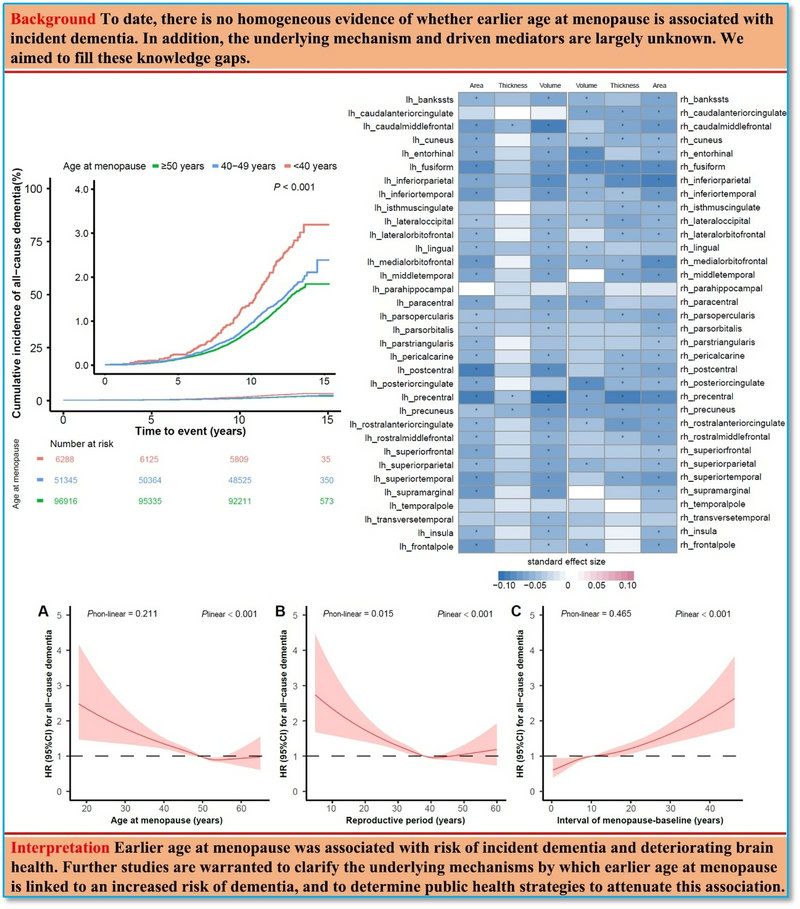Emerging evidence has shown that reducing modifiable risk factors may help to prevent and control dementia. Earlier menopause, particularly premature menopause, might be associated with increased risks of cardiovascular diseases, sleep disorders, psychiatric diseases, and other sequelae. It is uncertain whether earlier age at menopause is associated with incident dementia. In addition, the underlying mechanism and driven mediators are largely unknown.
The research was online published in eClinicalMedicine entitled “Association of earlier age at menopause with risk of incident dementia, brain structural indices, and the potential mediators: a prospective community-based cohort study” On June 8, 2023. In this prospective cohort study, Prof. Yamei Tang's team from Sun Yat-sen Memorial Hospital of Sun Yat-sen University found that earlier age at menopause was associated with the risk of incident dementia and deteriorating brain health. The relationship between earlier menopause and dementia was partially mediated by menopause-related comorbidities including sleep disturbance, mental health disorder, frailty, chronic pain, and metabolic syndrome. These findings have public health implications for the primary prevention of dementia, but studies are still warranted to future clarify the underlying mechanisms and to determine the strategy for preventing earlier menopause which would in turn contribute to lowering the risk of incident dementia.
Drs Huanquan Liao, Jinping Cheng, Dong Pan, and Zhenhong Deng, from the Department of Neurology, Sun Yat-sen Memorial Hospital, Sun Yat-sen University, are the co-first authors of this paper. Prof. Yamei Tang is the sole corresponding author.
The study included community participants from 2006 to 2010 and selected 154,549 postmenopausal women without dementia at enrolment who were followed up until June 2021. Age at menopause was entered as a categorical variable (<40, 40–49, and ≥50 years) with ≥50 years taken as a reference. Over a median follow-up period of 12.3 years, women with earlier menopause showed a higher risk of all-cause dementia compared with those ≥50 years (adjusted-HRs [95% CIs]: 1.21 [1.09–1.34] and 1.71 [1.38–2.11] in the 40–49 years and <40 years groups, respectively). Earlier menopause was negatively associated with brain MR global and regional grey matter indices, and positively associated with white matter hyperintensity. The relationship between earlier menopause and dementia was partially mediated by menopause-related comorbidities including sleep disturbance, mental health disorder, frailty, chronic pain, and metabolic syndrome, with the proportion (95% CI) of mediation effect being 3.35% (2.18–5.40), 1.38% (1.05–3.20), 5.23% (3.12–7.83), 3.64% (2.88–5.62) and 3.01% (2.29–4.40), respectively. Multiple mediator analysis showed a combined effect being 13.21% (11.11–18.20).

The full text is available at: https://www.thelancet.com/journals/eclinm/article/PIIS2589-5370(23)00210-9/fulltext



